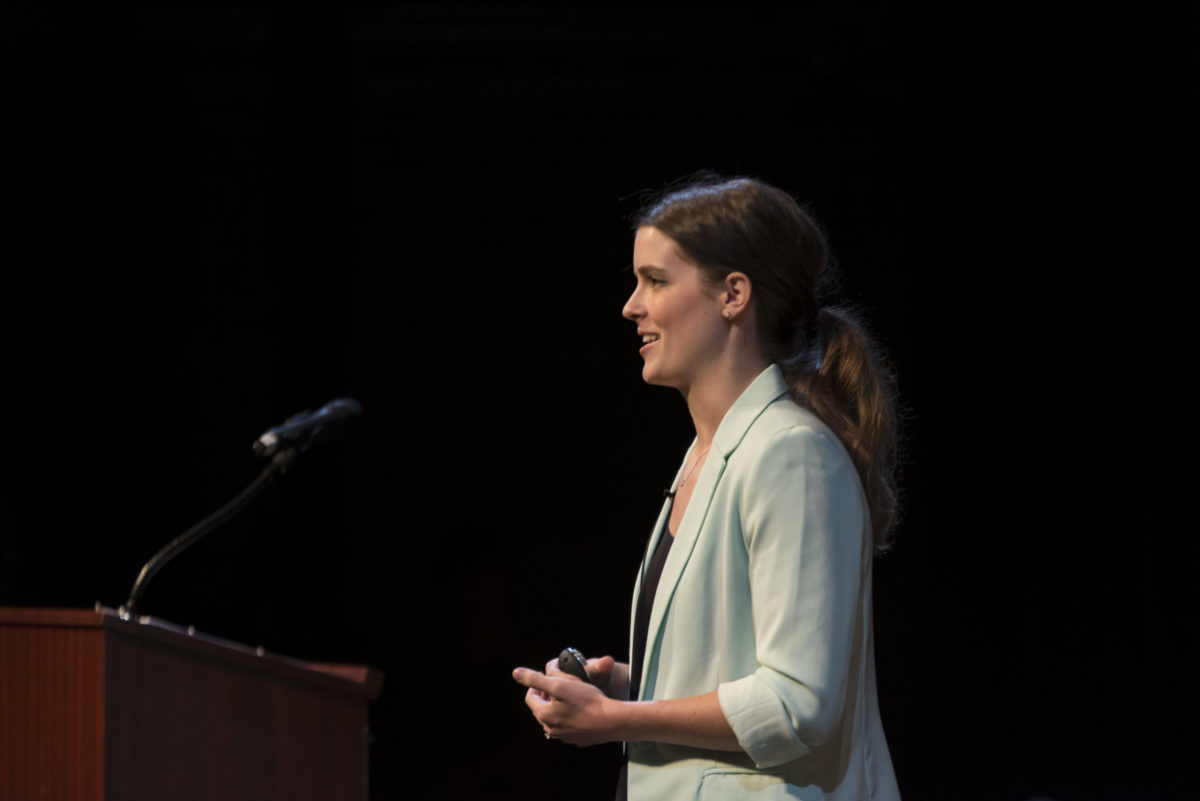Update: At the live IBM Watson AI XPRize competition’s final event on June 23, Marinus Analytics took home the third-prize award of $500,000. Read more details about the results. (6/23/21, 4 p.m.)
A woman-led team of data pros is gaining international recognition for their work to end human trafficking.
Since launching in June 2016, the IBM Watson AI XPrize has brought together teams of entrepreneurs across the globe with a mission to find the most innovative technology in artificial intelligence today. Starting with 147 teams doing work across a sectors like health, education, energy and space, the competition will announce its grand prize, second place and third place winners this Wednesday.
Pittsburgh, with its national leadership in the autonomy field, had a prominent presence in the competition, with several teams including AI-enabled trash sorting startup CleanRobotics and robotics education company Choitek advancing into subsequent rounds.
One of the three finalists, Marinus Analytics, calls Pittsburgh home, too.
Founded in 2014 as a Carnegie Mellon University spinoff, North Side-based Marinus Analytics uses artificial intelligence to help law enforcement efficiently locate survivors of human trafficking and gain evidence that will enable them to more quickly dismantle organized crime related to trafficking. Using a suite of AI tools like pattern recognition and graph databases, Marinus Analytics’ flagship platform Traffic Jam analyzes data from classified websites to track down information related to trafficking cases.
The technology behind Traffic Jam initially came from the senior honors thesis of Marinus Analytics cofounder and President Emily Kennedy.
“We were doing research to see, could this be done?” she said. “Could we use machine learning and other analytics to find insights and useful patterns out of this online data to find victims?” The more the success the platform showed in research, the more interest Kennedy got from human trafficking investigators hoping to use the technology on their cases, prompting her and the other cofounders to launch the technology as a commercial product.
Marinus Analytics purposely limits the input data used for Traffic Jam, only pulling from websites that post trafficking ads as opposed to doing a wide sweep across all social media. Because of the privacy risks and ethical concerns surrounding the use of facial recognition and the sensitivity of the work Marinus Analytics does, Kennedy stressed the importance of ethical data use in the company’s mission.
“For us, it’s not prudent to take a huge amount of data that’s really broad and then figure out later how we’re going to use it,” she said. “It’s important to us that we know clearly what our mission is, which is to find human trafficking victims and missing children, and then we limit our data scope to that mission.”
While building Marinus Analytics as a startup, Kennedy and her team worked with local incubators and accelerators like Project Olympus and Idea Foundry, both of which helped them find initial seed funding. As the company grew, Marinus Analytics also formed partnerships with local organizations such as the National Cyber-Forensics and Training Alliance, as well as larger groups and businesses like the National Center for Missing and Exploited Children and Amazon Web Services, that have allowed the company to advance its technology and expand its use in law enforcement.
Marinus Analytics already had momentum as a company going back to 2016, Kennedy said, but participation in the XPrize competition helped the team achieve more structured checkpoints as they grew.
“For instance, in the time of XPrize, we started putting out publicly our yearly impact report to say what is the progress that we made this year,” she said. “So XPrize helped us formalize some of those processes that you just don’t think about as much in the early days of your company.” The competition also helped draw more attention to the company in the press and “provided an extra platform for us to talk about the work we’re doing,” Kennedy added.
On Wednesday, the competition’s three finalists, including Montreal-based Aifred Health and Jerusalem-based Zzapp Malaria, will be announced as the $3 million grand prize, $1 million second place or $500,000 third place winners. Whatever amount Marinus Analytics wins will go toward advancing the Traffic Jam technology and growing its use internationally, as well as to the development of two new AI platforms — one in cyber fraud prevention and another in child welfare and protection. The company has future team expansion planned for these new initiatives, too.
But regardless of the competition results, Kennedy said that Marinus Analytics has plans to continue growing in Pittsburgh — a place that, to her, enables entrepreneurs to “do the gritty work that needs to be done without worrying too much about getting public attention for it.” More than other startup cultures Kennedy has been a part of, Pittsburgh represents a place of “doing rather than talking about things,” which she noted as the perfect environment for a social mission like Marinus Analytics’ to fully realize.
The live IBM Watson AI XPRize competition final event will be aired at 12:30 p.m. EST on Wednesday, June 23; register here. While an official XPrize jury will decide on the final winner, a voting form for public input is available here.







